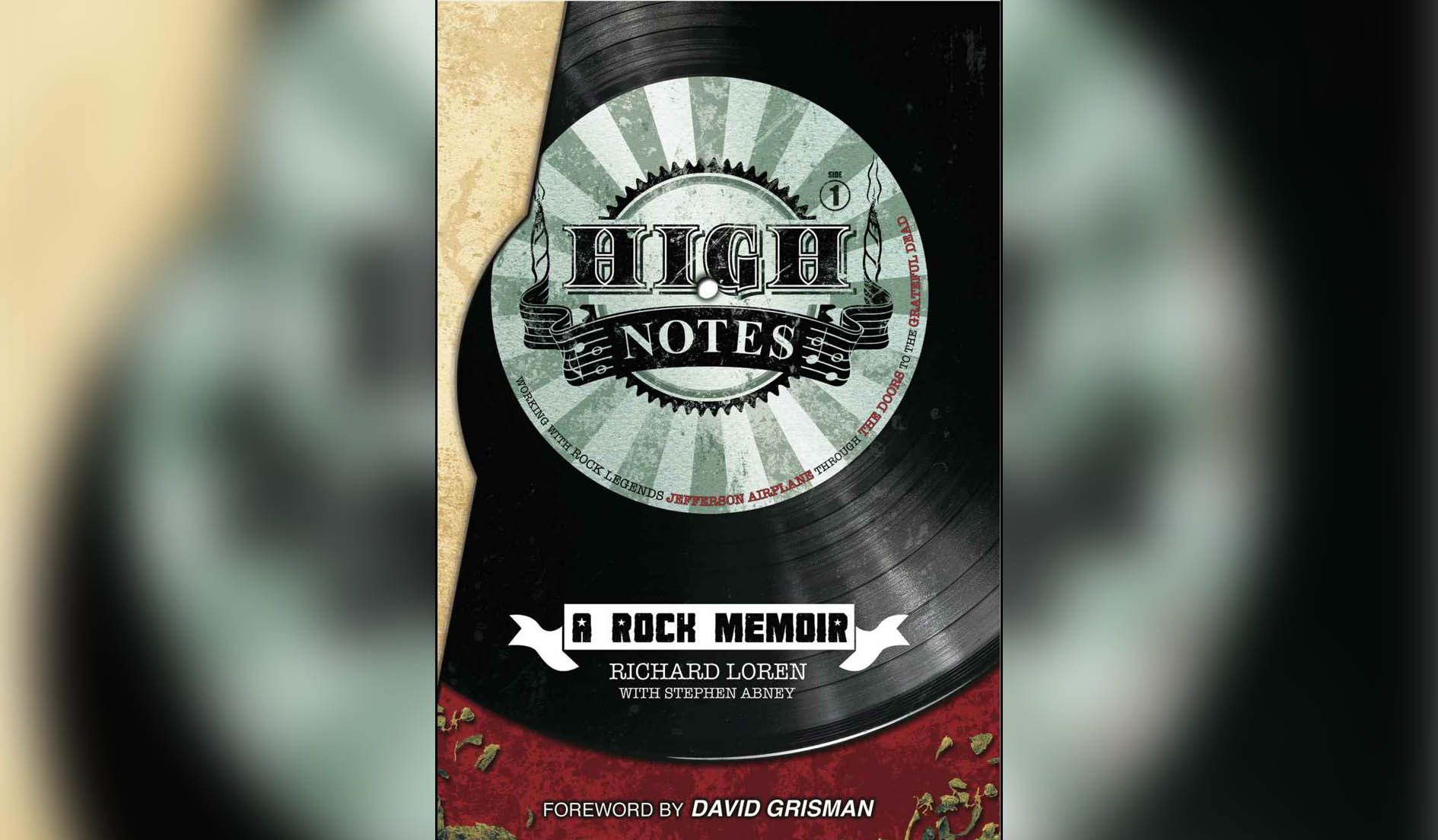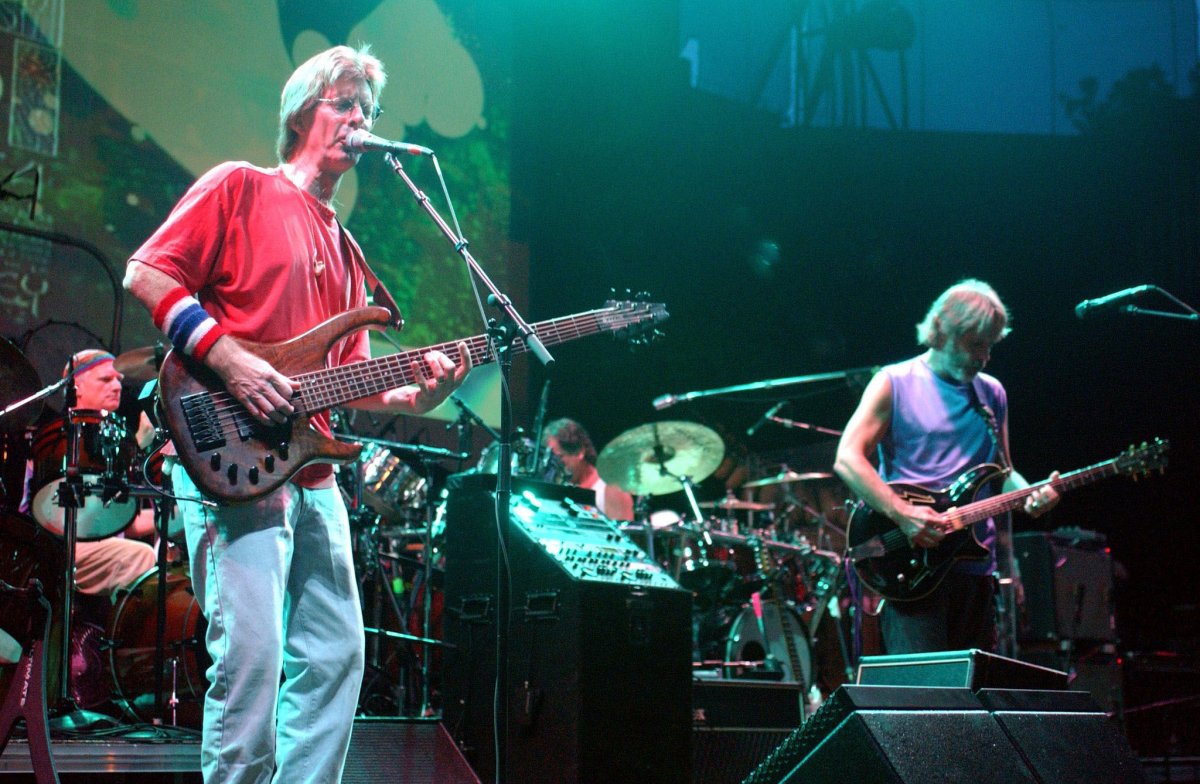
Legend has it that when the suits from Warner Bros. came from L.A. to visit the Grateful Dead in San Francisco in the '60s—and what suits they wore! blue blazers with the WB logo emblazoned on them—they wouldn't take any food or drink from the band because they were afraid of it being dosed with acid. (A not unreasonable fear.) Richard Loren, who managed the band from 1974 to 1981, was one of the new generation of music biz people; closer to the band in age, he had already worked with the Jefferson Airplane and the Doors by the time he began working with the Dead, but his career had begun in 1966, running some shows in Baltimore for a flashy entertainer of a different sort: Liberace. "Walter Busterkeys, as he called himself during his vaudeville days, had learned early in his career that it was more important to put on a show than a concert," Loren writes in his entertaining rock memoir, High Notes.
And for Loren, it was more important that he serve his clients well than be their buddies (though he numbered among his musical friends the Airplane's Marty Balin and the Dead's legendary guitarist, Jerry Garcia). "Nobody likes the businessman—the one who deals with the financial realities, the 'no' man—and my role with [the Dead] was very different," he writes. He talked with Newsweek from his home in Maine about his experiences.
Do you see yourself as a sort of bridge between the old showbiz world and the '60s?
The old performers all placated their audiences. They played up to their audiences. The Jefferson Airplane barely acknowledged their audience. I went to Toronto to see the Airplane and the Doors; that was when I smuggled that pot in for [drummer] Spencer Dryden. Bill Graham was in the dressing room, screaming at the band for their blasé attitude toward the crowd: "Don't you realize that this is your audience? You've got to be nice to them!" Bill was really old school.
You seemed to have a real connection with most of the groups you worked with.
When I met Jerry we immediately bonded. One thing about Jerry that was so amazing: We encountered a lot of people in our days together—whether they be record company executives or Deadheads—and everyone that he encountered he made them feel like he was their friend. I was not really much of a businessman, I just knew what went on in the business world. And, when I worked with the Grateful Dead, I was able to work within that collective as opposed to being the guy on the outside who carefully maneuvers around the band, doesn't drink anything and is afraid to talk to them.

You were hired for your business acumen, and people talk about the band as pioneers in guerilla marketing and brand building.
That wasn't the Grateful Dead that I knew. They developed this style later. What they did really was they catered to their fan base. If you want to call that a business thing, it's a smart thing to do. They started the Deadheads mailing list; they connected with them. They had this woman Eileen Law who worked in their office, and all she did was answer the phone and deal with Deadheads all day long.
They made some good business decisions, but in my opinion it's overhyped. The Grateful Dead were very lucky. Their attitude was, We want to do whatever we want to do. And then we'll just play more gigs if we can't afford it. This worked to a point: Somebody wanted a house, we'll play a gig and buy them the house. And this guy wanted a new studio, OK, we'll play a gig and get Mickey a studio. Phil wants a Lotus...whatever it was. And that worked for a while. But when it got to the point—I was involved with their business at a time when they didn't have a lot of money; things were really rough. We lost half a million dollars playing Egypt [at a three-night concert series near the pyramids], and it got tight there for a while. I had to make payroll and stuff.
You had a lot of dealings with Bill Graham.
It was a hate/love relationship; we both wore different hats. When I started he was the manager of the Jefferson Airplane, I had to go to him to approve offers I got from promoters.… When I became manager of the Grateful Dead, he resented me because he always wanted to be the Dead's manager. They didn't want to be managed by someone who was their promoter; they wanted to be friends with him but—I can't say they didn't trust him, but they didn't trust him.
One of the stranger episodes in your book is Garcia's encounter with John Lennon, who showed up at a concert drunk and kept calling him "JC."
He had left Yoko, it was the period of time when he was by himself, he was bonded to a woman but he was still young—I know what that's like!… You're still young, you want to sow your wild oats, and you're famous, and you don't control yourself. You're a big star, everyone takes care of you; next thing you're too drunk and too fucked up.
If you were a young man in this business today would you work with bands?
I was in it for the music; music shaped my life and spoke to my soul. It broadened my life and expanded my consciousness. I'm attracted to music.… Once I told some artists I was working with who wanted to be big stars, I said: Do you have a job? They said no. Do you play music? Yes. Can you eat, can you pay your rent? Yes. Well, you already made it. If you can play music and not have to worry about income, you're a success. Anything after that you are treading dangerous waters. You think you're looking for stardom, but it may not be what you want in the end.
Any thoughts about the stars from the '60s who died so young?
They were shooting stars, Janis, Jimi, Jim Morrison. Jim told me once, "I never want to get old." People say, What is it with these people? They could have lived, they could have had careers. But I can't picture an old Jimi Hendrix or an old Jim Morrison.… It was their destiny.
Uncommon Knowledge
Newsweek is committed to challenging conventional wisdom and finding connections in the search for common ground.
Newsweek is committed to challenging conventional wisdom and finding connections in the search for common ground.
About the writer
I'm a freelance writer and editor based in Brooklyn, New York; Salisbury, CT; and Palo Alto, CA. My writing has ... Read more
To read how Newsweek uses AI as a newsroom tool, Click here.








